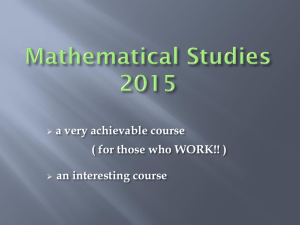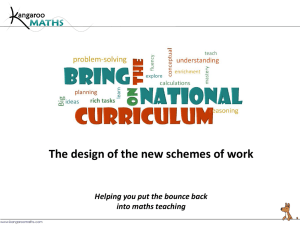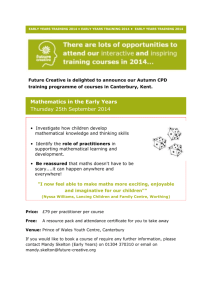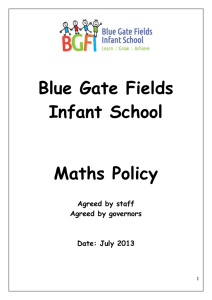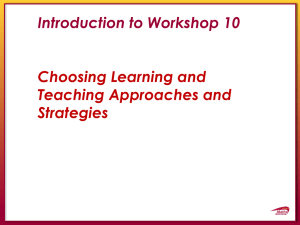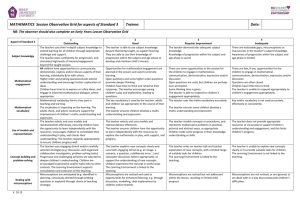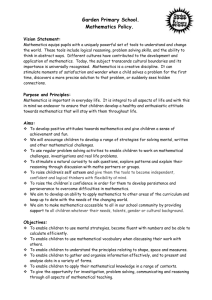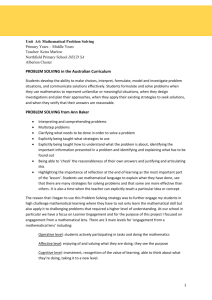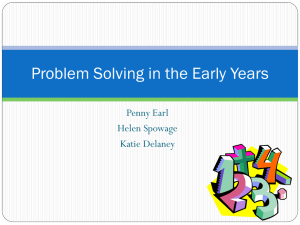Cross-Curricular Maths including Stories
advertisement
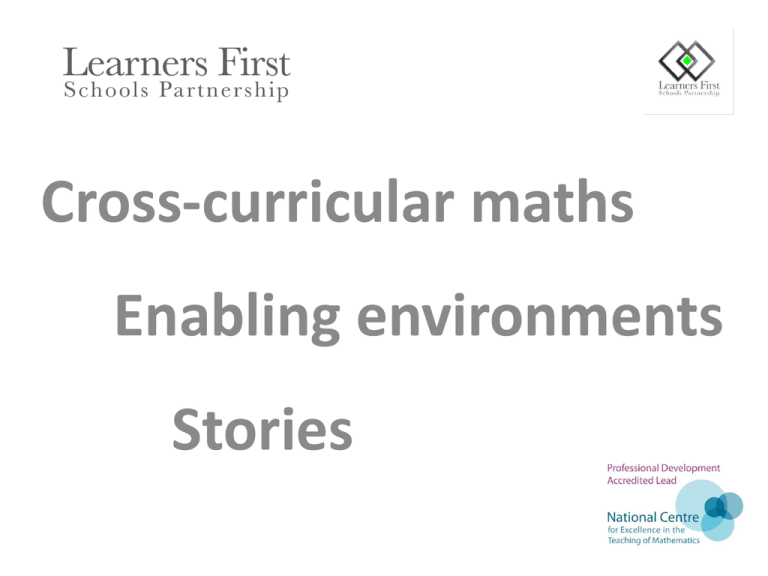
Cross-curricular maths Enabling environments Stories Aims • To develop an understanding of the importance of a maths environment • To understand the role of cross-curricular approaches to maths • To examine the use of stories as a vehicle for mathematical thinking and investigation. Maths environments • Describe the maths environment in your setting. • What are the intentions? • ‘Made’ mathematical environments • Inherent mathematical environments ‘Made’ mathematical environments • Topic or maths strand related • Resources chosen and presentation planned • Related to intended learning • Pros and cons? Inherent mathematical environments • Illuminate intended learning in a topic or maths strand • What mathematics can be identified in this environment? • Advantages? Cross curricular approaches Research indicates that when children’s literature and numeracy are connected in an interactive and meaningful way, students will understand the mathematics concepts readily and will sustain the knowledge. (Raymond, 1995) Cross curricular approaches – The National Curriculum aims: • become fluent in the fundamentals of mathematics, including through varied and frequent practice with increasingly complex problems over time, so that pupils have conceptual understanding and are able to recall and apply their knowledge rapidly and accurately to problems • reason mathematically by following a line of enquiry, conjecturing relationships and generalisations, and developing an argument, justification or proof using mathematical language • can solve problems by applying their mathematics to a variety of routine and non-routine problems with increasing sophistication, including breaking down problems into a series of simpler steps and persevering in seeking solutions. Cross curricular approaches Curriculum areas: Science Humanities Languages Art Design Music PE RE Computing Maths strands: Number: place value, four operations, fractions position and direction, geometry, measurement, Stories as a vehicle for thinking Stories as a vehicle for mathematical thinking and investigation Age group? Some favourites ….. Stories as a vehicle for mathematical thinking and investigation Practicalities: • Know what you want children to learn. Keep in mind that the story is a vehicle for learning • Fit your approach, tasks and resources to your children; not the other way round. Beware Sparkleboxitis. • Make intended learning explicit Useful websites NCETM www.ncetm.org NRICH: www.nrich.org Cross curricular approaches Research indicates that when children’s literature and numeracy are connected in an interactive and meaningful way, students will understand the mathematics concepts readily and will sustain the knowledge. (Raymond, 1995)
